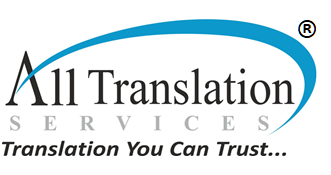The dependence of judicial system on translation industry
It is evident that the translation industry has an important place in the judicial system across the world
Any legal translation means transforming the important documents from the main language to a new language. Hence, the interpreters have been extensively present for several thousand years in the judicial system. It is now an important career aspect that students can pursue for their future.
The legal translation consists of three main fundamentals, i.e., translation theory, language theory, and legal theory. However, they heavily rely upon the natural language. Even the judiciary is an unstable platform. Several changes happen regularly that largely depend upon the laws of the country.
What does legal translation mean?
Therefore, legal translation is another field of translation for interpreting legal documents in another language. The message of the documents should remain intact even after translation. That’s why the legal translators must have proficiency in the law terminologies. They must also have a good command over the area they are applying.
Furthermore, these are the important documents translated as per the law.
• Depositions
• Transcripts of Witness and Court
• Confidential Agreements
• Policies
• Legal Disclaimers
• Trust and Wills
• Complaints
• Licenses
• Arbitration Translation
• Legal Statements
• Documentation for Litigations
• Others
What are the Key Components of Any Legal Translation?
Hence, these are some important components of every legal translation that you must know. Have a look.
Legal Discourse
Firstly, you can differentiate legal documents into descriptive and prescriptive texts. Along with that, there are hybrid texts that have functions of both types. But, the final or the target text carries the legal effects. Hence, its functioning highly depends on communication.
Significant System for Rules
You need to know that the law is the combination of different types of systems. The legal translators must maintain proficiency in the procedures, institutes, concepts, etc. Thus, it helps in effective translation.
Fidelity
Thirdly, you should not consider fidelity as the source for the text. Legal translators are not just capable of typing in several languages. They are also considered text producers. Hence, they must understand what the legislator is saying and translate them accordingly.
Interpretation
As a legal translator, you must know the jargon. Also, you must have strong knowledge about the politics, ethics, culture, etc. Otherwise, this will lead to ambiguity which will create problems while interpreting the documents.
What are the important skills of legal translator?
Translation requires an immense understanding of the language and style. Hence, it is a tough job. So, these are some important skills that any legal translator must have.
– High Qualification in Technicalities
– Knowledge about the Source and Target Language as well
– Skills for Researching
– High Proficiency in Legal Translation
Importance of Translation Industry in Judiciary
You can now understand from the above discussion that why translation industry holds a strong place in the judiciary. Hence, a skilled legal translator is always in demand, so they can help in providing reliable outcomes. Otherwise, any incorrect translation can infringe the legal right of people.
In conclusion, there is no place for any misinterpretation or wrong translation in judiciary system. It is also helpful when the translated copy needs some changes. Hence, the clients will figure out and compare them to identify the changes.
